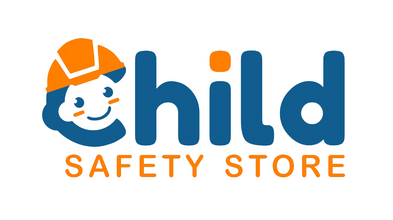
Colic Awareness Month
Having a newborn baby is a wondrous occasion, but for new parents there is also plenty to worry about. For one, colic is a very common issue for infants. Did you realize that March is Colic Awareness Month?
Read on to learn a bit more about Colic Awareness Month and this surprisingly common ailment.
Understanding Colic and Colic Awareness Month
Colic Awareness Month, like many of the themed events we highlight on the Safety Blog, is designed to raise awareness. Contrary to popular belief, colic is not a disease. There is no specific germ or virus to worry about. In a nutshell, colic is a sort of blanket term used to describe a set of behaviors in infants that involve frequent and intense crying, often without an obvious cause. Believe it or not, it actually is reported to affect anywhere from 10% to 40% of infants.
Of course, knowing that many kids suffer from a disorder is only one part of the equation. This may not be entirely comforting to new parents. Another part of the reason for Colic Awareness Month is to show families that they are not alone.
What are the Symptoms of Colic?
As we mentioned, an infant who is suffering from colic may simply show it by screaming or crying. Often, this crying will not be due to pain, a choking hazard or diaper rash irritation. Instead, the little one will simply seem to be extremely upset without reason. Often this crying is combined with a reddened face, clenched fists and a very tense body.
More often than not, colic-like outbursts tend to occur at roughly the same time of time. This is often in the evenings or after dinner. In a situation like this, it is important to speak with a pediatrician. A medical professional will be able to give an accurate diagnosis and some guidance. This advice will usually be based on how frequent the attacks occur and the age of the child.
This Too Shall Pass
For worried parents, there is much hope. Part of Colic Awareness Month is comforting parents with the fact that this condition is not permanent. In short, many colic cases begin when a baby is only two to three weeks old. Typically, the episodes tend to decline significantly after three to four months.
Again, as stated earlier, colic is not necessarily a sign of illness. That said, a doctor can offer some words of wisdom and a few potential preventative measures. For example, it is possible that a breastfeeding mother may have something in her diet that is affecting the infant’s demeanor.
Beyond this, it may simply be a case of needing to alter the feeding technique. Perhaps the infant is swallowing too much air while eating. This can often be fixed with a simple adjustment of the position the baby is in while eating.
There is not a cure for colic, but it is understandable why so many parents have questions. Colic Awareness Month is a great opportunity to spread information and resources that can help to calm any fears.
Share this article with any new or expecting parents that you know. Some basic tips and reassurance can go a long way toward providing peace of mind to both parents and child.
